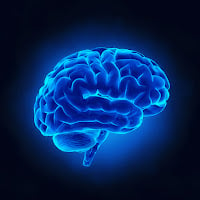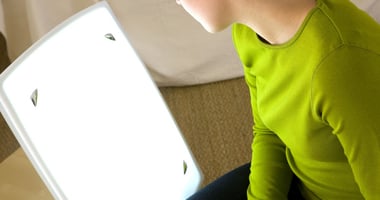Cognitive therapy for PTSD delivered intensively over little more than a week was as effective as...
Magnetic Seizure Therapy for Depression Found as Effective as ECT

Magnetic seizure therapy (MST) appears to be as effective as electroconvulsive therapy (ECT) at achieving lasting antidepressant effects in people with major depression and may be less disorienting. The findings were published yesterday in JAMA Psychiatry.
While ECT is highly effective for treating major depressive disorder, “it carries the risk of adverse neurocognitive effects,” wrote Zhi-De Deng, Ph.D., of the National Institute of Mental Health and colleagues. MST aims to match the efficacy of ECT while reducing the adverse effects, they continued.
Deng and colleagues conducted a trial of participants aged 18 to 90 years who were referred for ECT treatment. The participants had all experienced a major depressive episode and had a diagnosis of major depressive disorder or bipolar disorder. They had a baseline score of 18 or higher on the 24-item Hamilton Depression Rating Scale (HDRS-24). Participants were tapered off any antidepressant medications they were taking and assigned to receive either MST or right unilateral ultrabrief pulse ECT, after which they were followed for up to six months.
Participants in both groups received treatment three times per week until they achieved remission (defined as at least 60% reduction in HDRS-24 score and a total score of no more than 8), or until their HDRS-24 scores plateaued for at least three treatment sessions starting after treatment eight. If participants had less than a 25% decrease in HDRS-24 score by the eighth treatment, treatment was discontinued, and participants were given routine clinical care. Participants were considered to have completed treatment if they had received at least eight treatments or achieved remission prior to the eighth treatment.
Adverse effects were evaluated after each treatment session using the Columbia ECT Subjective Side Effects Schedule. The time it took participants to orient themselves following treatment was assessed after each session by having patients open their eyes on command and correctly answer personal identification questions, such as their name, age, and date of birth. Depression severity was measured with the HDRS-24 the morning of each treatment session, 24 to 72 hours after the last treatment session, twice per month for the first two months after treatment, and once per month thereafter.
Among 73 patients, 35 were randomized to MST and 38 to ECT. Both MST and ECT demonstrated clinically meaningful antidepressant effects, with participants in both groups starting with an average baseline HDRS-24 score of about 30, which then reduced to about 18 by the eighth treatment. The antidepressant benefit participants experienced at the end of treatment, as measured by the HDRS-24 score, was maintained at the two-month and six-month follow-ups. Additional findings included the following:
- 53 participants completed treatment, including 29 in the MST group and 24 in the ECT group.
- 45% of participants in the MST group and 42% of participants in the ECT group met remission criteria.
- The mean number of treatments needed to achieve remission was 9.0 in the MST group and 6.7 in the ECT group.
- On average, it took participants in the MST group a few minutes to orient themselves, compared with almost 20 minutes among participants in the ECT group.
- Five serious adverse events were reported, all in the ECT group, including three cases of worsening depression that resulted in hospitalization. In the MST group, four adverse events were reported such as nausea and vomiting after treatment.
“Our study is the first, to our knowledge, to demonstrate durability of antidepressant effects of MST that were comparable with those of ECT for up to 6 months,” the authors wrote. “[T]he faster time to orientation and improved autographical memory recall found with MST suggest that MST may provide substantial antidepressant benefits while maintaining a high level of cognitive safety.”
For related information, see the Psychiatric News article “Is Magnetic Seizure Therapy Ready to Round the Corner?”
(Image: Getty Images/iStock/janulla)
Don't miss out! To learn about newly posted articles in Psychiatric News, please sign up here.






